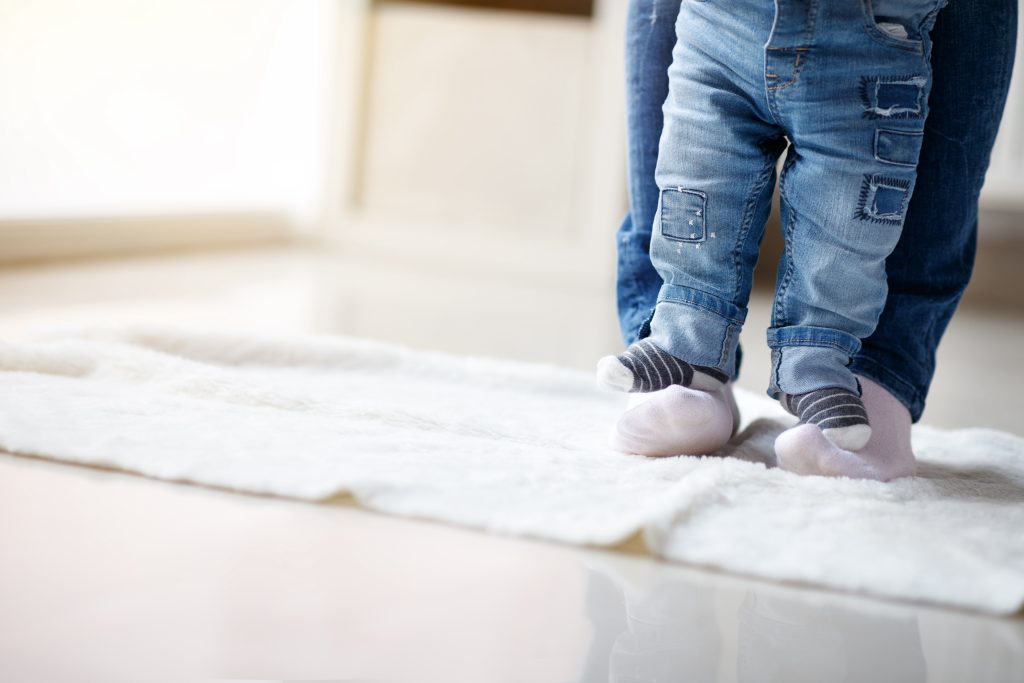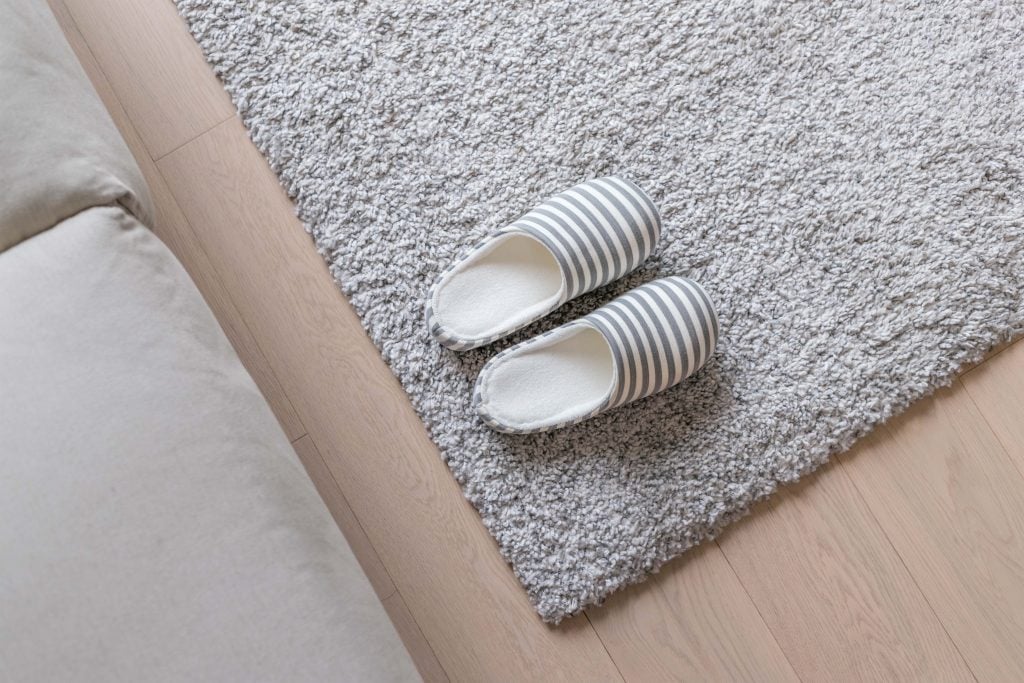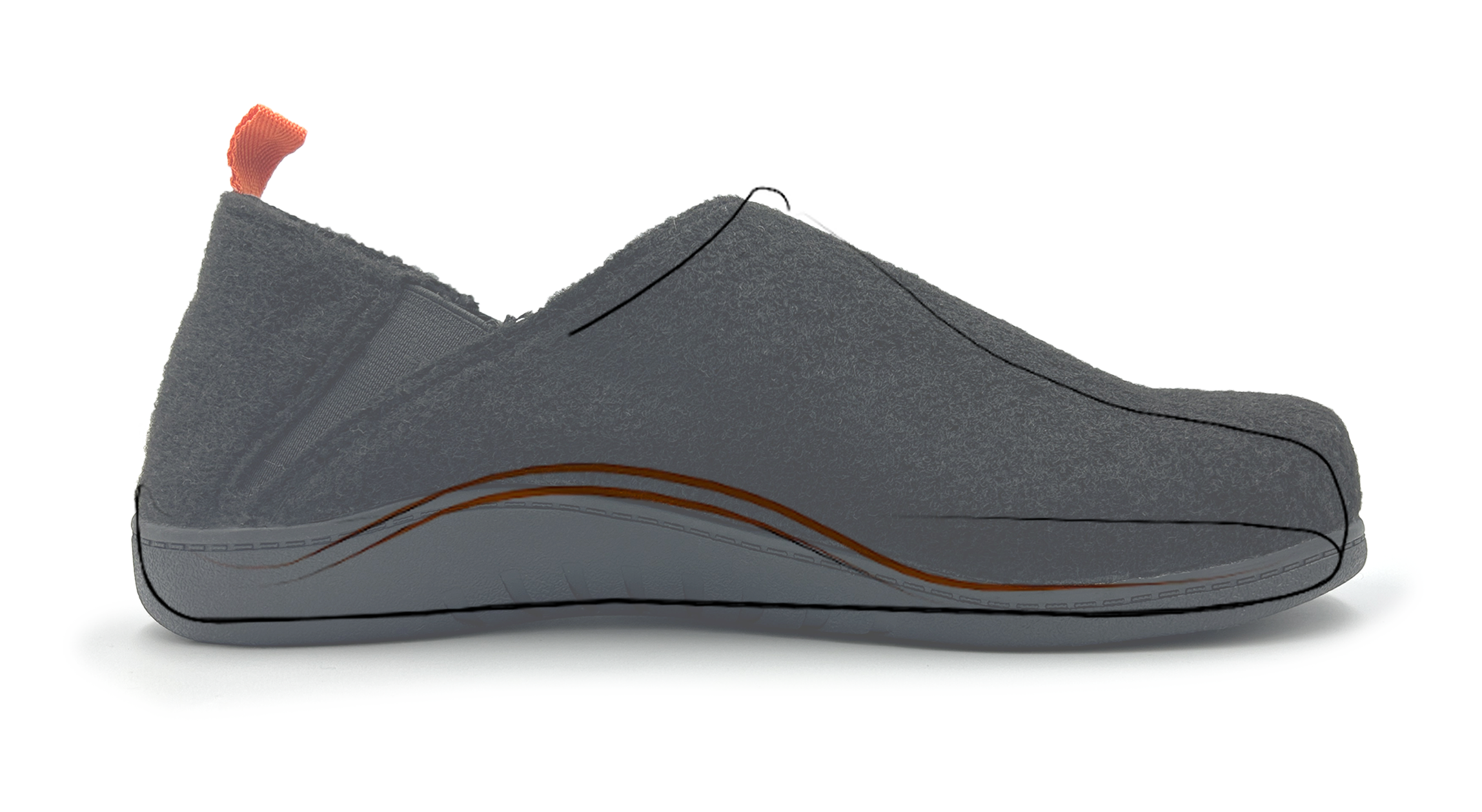Searches for slippers are on the rise and it’s the same year in, year out.
At the start of November and early December, many of us are looking to buy slippers. It’s the same year in, year out: whether it be for a Christmas present or treating themselves to something warm as the cold nights draw in and we become more inclined to stay at home.
It’s true, there is often nothing better than a long weekend at home, staying cosy in a comfy pair of slippers.
But, what are the benefits of wearing slippers?
There have been studies into whether wearing slippers can protect you from the common cold and flu, with Dr Ron Eccles, ex-director of Cardiff University's Common Cold Centre, studying the issue as far back as 2006. He believes that if the temperature of your feet drops, it can cause a change in the whole body which leads to your nose becoming cold. This then increases the likelihood of a full-blown cold developing. Following this theory, slippers primarily keep your feet warm, and, therefore, protect you from developing a nasty cold, or even flu. Long live the slipper.
However, in this article, we’re taking an impartial look at the matter, looking beyond our simple creature comforts, and asking whether the humble house shoe can actually do more harm than good.
The top 5 benefits of wearing slippers at home

Before we really get into the gritty details, we should acknowledge that there are in fact a range of positives we can experience when we wear slippers, most of which contribute to mental relaxation. So, here they are:
1. Comfort
One of the primary reasons people opt for slippers is the unmatched comfort they provide. With their soft materials and cushioned soles, slippers offer a gentle embrace for tired feet, making them an ideal choice for leisurely strolls around the house. Unlike barefoot walking, which can lead to discomfort on hard surfaces, slippers provide a layer of protection and support that eases strain on the feet.
2. Hygiene
Beyond comfort, slippers also play a crucial role in maintaining cleanliness and hygiene. By creating a barrier between your feet and the floor, slippers help prevent direct contact with dirt, dust, and bacteria that may lurk on surfaces. This simple act can significantly reduce the risk of picking up contaminants and potentially lower the chances of infections or skin irritations.
3. Warmth
As the temperature drops, the appeal of slipping into a cosy pair of slippers becomes even more enticing. With their insulating properties, slippers help keep your feet warm and toasty, particularly on chilly mornings or evenings. Say goodbye to cold tile or hardwood floors in the mornings — the plush interior of slippers provides a welcome refuge, ensuring that your feet stay snug and comfortable.
4. Protection
Beyond comfort and warmth, slippers offer a layer of protection for your feet. Whether you're navigating a cluttered room or tiptoeing around sharp objects, slippers act as a shield against potential hazards. Depending on the construction, their can soles provide a certain amount of traction, reducing the risk of slips, falls, or accidental injuries that are more likely to occur in a pair of socks alone.
5. Relaxation
There's something inherently soothing about slipping into a pair of slippers at the end of a long day. Slippers signal a shift into relaxation mode, inviting you to unwind and decompress. Whether you're lounging on the couch or puttering around the kitchen, the simple act of wearing slippers can inspire a sense of cosiness and contentment, helping you disconnect from the stresses of the outside world.
Whilst all points raised are great, you might have noticed that many of these benefits are only superficial. Let’s have a closer look at the impact that slippers actually have on our foot health.
What impact do slippers have on our feet?
Well, the fact of the matter is, unfortunately, wearing slippers doesn’t bring many, if any, benefits to our feet. In fact, it’s quite the opposite.
Will Munro, Managing Director at FootActive, highlighted this, saying: “Wearing slippers gives the same concerns as wearing flip flops. However, with flip flops, you might only wear them once or twice a year for a week or two at a time but slippers are worn more long term and that’s when you might start to notice problems.
Wearing slippers can massively impact your balance and gait - the way you walk. When wearing slippers, people tend to shuffle which over time can start to cause more long-term problems.”

It isn’t just the way you walk you need to think about either. Slippers could also affect your toes and ankles and, in turn, cause a great deal of discomfort long term.
Slippers force your toes to curl down and grip onto the sole as you step as they often don’t have anything gripping to your heel to keep them in place. They also don’t offer the necessary ankle or arch support.
Will added: “With the design of most slippers and the lack of grip on the heel, they also provide more of a tripping hazard. They are more likely to come off your feet or come into contact with an obstacle which is an issue in itself.”
Slippers' primary purpose is often to keep your feet warm. However, if you are wearing anything on your feet for a prolonged period of time, they also need to offer adequate support and protection – qualities that slippers aren’t commonly associated with.
How can we make sure that our slippers aren’t causing lasting damage?
Slippers should be saved for a special treat - a Sunday evening when you have your feet up in front of the TV, for example, rather than as a form of footwear to wear when moving around the house regularly.

‘Well, where does that leave me?’ you might wonder. We’re the last to want to rob you of the relaxing and warming benefits of wearing slippers while you potter around the house. So, if you do plan on wearing slippers for a prolonged period then the best option is to make sure you are wearing an orthopaedic slipper with arch support. Preferably ones that have enough grip to prevent you from slipping and tripping.
If you wear orthotic insoles or supportive shoes during the day then why would you not give your feet the same support in the evenings?
When it comes to existing foot problems, is wearing slippers a good idea?
If you are already suffering from a foot problem like plantar fasciitis, the best thing you can do is wear a proper insole in a proper shoe but that’s not always the most comfortable option, especially for times when you are relaxing around the house.
A lot of people don’t want to wear the shoes they’ve worn outside around the home so it might be worth considering a house shoe option, rather than a typical slipper.
There are certain orthopaedic slippers that are designed for people who need to take additional care of their feet.
Will explained: “When you have existing foot problems, you do have to address it and make allowances for it and one of the main ways to do that, when it comes to your slippers, is to find ones that offer that bit of extra support and are, essentially, a bit more shoe-like but with a softer lining.”
FootActive offer a range of orthotic slippers to help reduce the problems slipper wearing can bring. They feature our NHS-Approved FootActive biomechanical arch support, non-slip recycled rubber outsoles and an elasticated heel to keep your slippers snug on your feet.
If you have any questions about the information provided in this article, or you’re curious as to how our insoles could relieve the symptoms of the foot problems you might be experiencing, chat to our friendly team on +44 (0)1963 33088.
Image credit: Shutterstock
It isn’t just the way you walk you need to think about either. Slippers could also affect your toes and ankles and, in turn, cause a great deal of discomfort long term.
Slippers force your toes to curl down and grip onto the sole as you step as they often don’t have anything gripping to your heel to keep them in place. They also don’t offer the necessary ankle or arch support.
Will added: “With the design of most slippers and the lack of grip on the heel, they also provide more of a tripping hazard. They are more likely to come off your feet or come into contact with an obstacle which is an issue in itself.”
Slippers' primary purpose is often to keep your feet warm, but if you are wearing anything on your feet for a prolonged period of time, they also need to offer adequate support and protection - qualities slippers aren’t commonly associated with.
Many of us are guilty of walking around at home in socks or bare feet - is this any better?
In short, no.
Walking around barefoot can cause problems not only with the skin of your feet but also with the biomechanical functions of the foot. Although generations before us walked around without shoes on, our feet are arched which means, inadequate support could result in a number of different problems.
There are a number of other issues walking around bare feet can cause, including bunions, hammertoe, and heel pain - all of which can result in additional pressure on our knees and hips, impacting the body as a whole, rather than just general foot pain.
How can we make sure that our slippers aren’t causing lasting damage?
Slippers should be saved for a special treat - a Sunday evening when you have your feet up in front of the TV, for example, rather than as a form of footwear to wear when moving around the house regularly.
If you do insist on wearing slippers for a prolonged period then the best option is to make sure you are wearing an orthopaedic slipper with arch support, and ones that have enough grip to prevent you from slipping and tripping.
If you wear orthotic insoles or supportive shoes during the day then why would you not give your feet the same support in the evenings?
When it comes to existing foot problems, is wearing slippers a good idea?
If you are already suffering from a foot problem like plantar fasciitis, the best thing you can do is wear a proper insole in a proper shoe but that’s not always the most comfortable option, especially for times when you are relaxing around the house.
A lot of people don’t want to wear the shoes they’ve worn outside around the home so it might be worth considering a house shoe option, rather than a typical slipper.
There are certain orthopaedic slippers that are designed for people who need to take additional care of their feet.
Will explained: “When you have existing foot problems, you do have to address it and make allowances for it and one of the main ways to do that, when it comes to your slippers, is to find ones that offer that bit of extra support and are, essentially, a bit more shoe-like but with a softer lining.”
FootActive offer a range of orthotic slippers to help reduce the problems slipper wearing can bring. They feature our famous FootActive biomechanical arch support, non-slip recycled rubber outsoles and an elasticated heel to keep your slippers snug on your feet.
Image credit: Shutterstock
